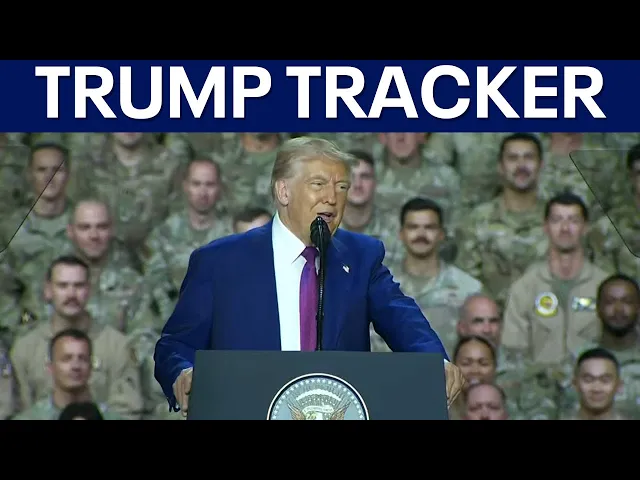President Trump discusses AI, trade, and more during Middle East visit

Trump's AI policies could reshape tech landscape
In a sprawling interview during his Middle East visit, former President Donald Trump offered rare insights into his views on artificial intelligence and its implications for American competitiveness. While Trump has historically focused his technology rhetoric on social media regulation and China trade policies, this conversation revealed a more nuanced perspective on how he sees AI's role in America's economic future. The interview, which covered everything from market regulations to immigration policy, suggests AI governance could become a significant policy battleground in the upcoming election.
Key aspects of Trump's AI stance:
- Trump emphasized AI's strategic importance to American competitiveness, particularly against China, framing it as a critical national security concern rather than just a business innovation
- He positioned himself as pro-innovation while simultaneously expressing concerns about AI's potential risks, especially regarding job displacement and market concentration
- Trump indicated he would pursue a regulatory approach that balances fostering innovation with implementing "safeguards" against harmful uses, though specifics remained vague
The most revealing aspect of Trump's commentary was his framing of AI as both an economic opportunity and a potential threat. "We have to win the AI race," Trump stated, explicitly connecting technological leadership to national security in ways reminiscent of Cold War rhetoric. This represents a significant evolution from his previous technology policy positions, which focused primarily on content moderation and Section 230 reform.
This shift matters immensely in the current political and business climate. With the Biden administration having already established an AI regulatory framework through executive order, any incoming administration would face immediate decisions about continuing, modifying, or replacing these policies. Trump's comments suggest he views AI governance through a competitive lens first and foremost, potentially signaling a move away from the ethics-forward approach currently guiding federal policy.
What the interview didn't address was how Trump's AI policies might specifically differ from current approaches. The Biden administration has pursued a multi-pronged strategy involving voluntary commitments from AI companies, research funding, and targeted regulation. Trump's history suggests he might favor a more deregulatory approach, but his comments about "safeguards" hint at recognizing the unique challenges AI presents.
A critical missing dimension is how Trump's AI policies would interact with his broader economic agenda. His previous administration focused heavily on trade policy and manufacturing, with mixed results for the technology sector. If AI development becomes increasingly intertwine
Recent Videos
How To Earn MONEY With Images (No Bullsh*t)
Smart earnings from your image collection In today's digital economy, passive income streams have become increasingly accessible to creators with various skill sets. A recent YouTube video cuts through the hype to explore legitimate ways photographers, designers, and even casual smartphone users can monetize their image collections. The strategies outlined don't rely on unrealistic promises or complicated schemes—instead, they focus on established marketplaces with proven revenue potential for image creators. Key Points Stock photography platforms like Shutterstock, Adobe Stock, and Getty Images remain viable income sources when you understand their specific requirements and optimize your submissions accordingly. Specialized marketplaces focusing...
Oct 3, 2025New SHAPE SHIFTING AI Robot Is Freaking People Out
Liquid robots will change everything In the quiet labs of Carnegie Mellon University, scientists have created something that feels plucked from science fiction—a magnetic slime robot that can transform between liquid and solid states, slipping through tight spaces before reassembling on the other side. This technology, showcased in a recent YouTube video, represents a significant leap beyond traditional robotics into a realm where machines mimic not just animal movements, but their fundamental physical properties. While the internet might be buzzing with dystopian concerns about "shape-shifting terminators," the reality offers far more promising applications that could revolutionize medicine, rescue operations, and...
Oct 3, 2025How To Do Homeless AI Tiktok Trend (Tiktok Homeless AI Tutorial)
AI homeless trend raises ethical concerns In an era where social media trends evolve faster than we can comprehend them, TikTok's "homeless AI" trend has sparked both creative engagement and serious ethical questions. The trend, which involves using AI to transform ordinary photos into images depicting homelessness, has rapidly gained traction across the platform, with creators eagerly jumping on board to showcase their digital transformations. While the technical process is relatively straightforward, the implications of digitally "becoming homeless" for entertainment deserve careful consideration. The video tutorial provides a step-by-step guide on creating these AI-generated images, explaining how users can transform...
